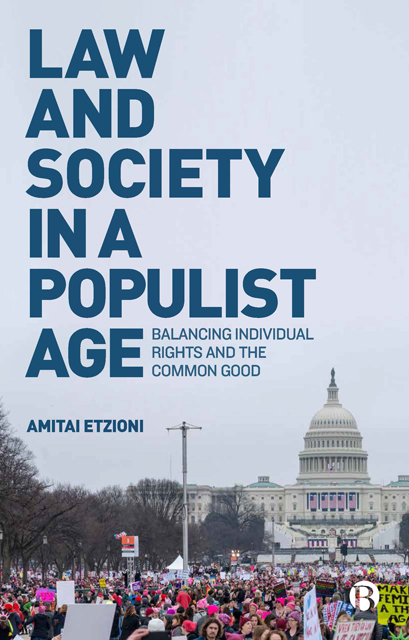four - Forging new legitimacy
Published online by Cambridge University Press: 21 April 2023
Summary
Some see societies and their laws in Durkheimian ways. They view societies as communities that have shared moral cultures which are expressed in laws, supported by moral consensus. Others see societies and their laws in a Marxian way. They view societies as arenas in which different power groups clash. As I see it, societies combine both elements. We have seen, in the preceding chapters, the important role that private concentrations of power play in shaping public life, above all through lawmaking and implementation. This chapter examines the role of values and consensus in providing legitimacy to the social order and its laws, or withdrawing such legitimacy and forging a new one. When the old legitimacy is lost but no new one is formed, authoritarian regimes and/or populist movements are likely to follow.
Moral dialogues are social processes through which people form new shared moral understandings, the foundations on which new legitimacy can be constructed.These dialogues typically are passionate, disorderly, and without a clear starting point or conclusion (in contrast to elections or debates in a legislature). However, moral dialogues often do lead to profound changes in the moral positions of those who are engaged in them. Although moral dialogues never change the values of all those involved, they often, as we shall see, change the moral positions of a sufficient number of people so that actions and policies that previously had little support (e.g. environmental protection), and actions and policies considered morally inappropriate by many (e.g. same-sex marriage), gain widespread moral approval.
Moreover, we shall see that when moral dialogues mature, the new shared moral understandings that arise have profound sociological effects well beyond changes in values and norms and attitudes. These new or changed moral understandings are embedded in new laws or lead to significant changes in law and, more importantly, lead to major changes in voluntary behavior. For instance, the shared understanding that we have a moral obligation to the environment led to the founding of a new U.S. government agency (the Environmental Protection Agency), scores of new laws and regulations, and considerable changes in voluntary personal behavior, including recycling, preferences for sustainable sources of energy (a factor in purchasing cars, appliances, and solar panels), donations, and voting. True, these changes were also effected by other factors, especially changes in economic incentives.
- Type
- Chapter
- Information
- Law and Society in a Populist AgeBalancing Individual Rights and the Common Good, pp. 63 - 90Publisher: Bristol University PressPrint publication year: 2018



